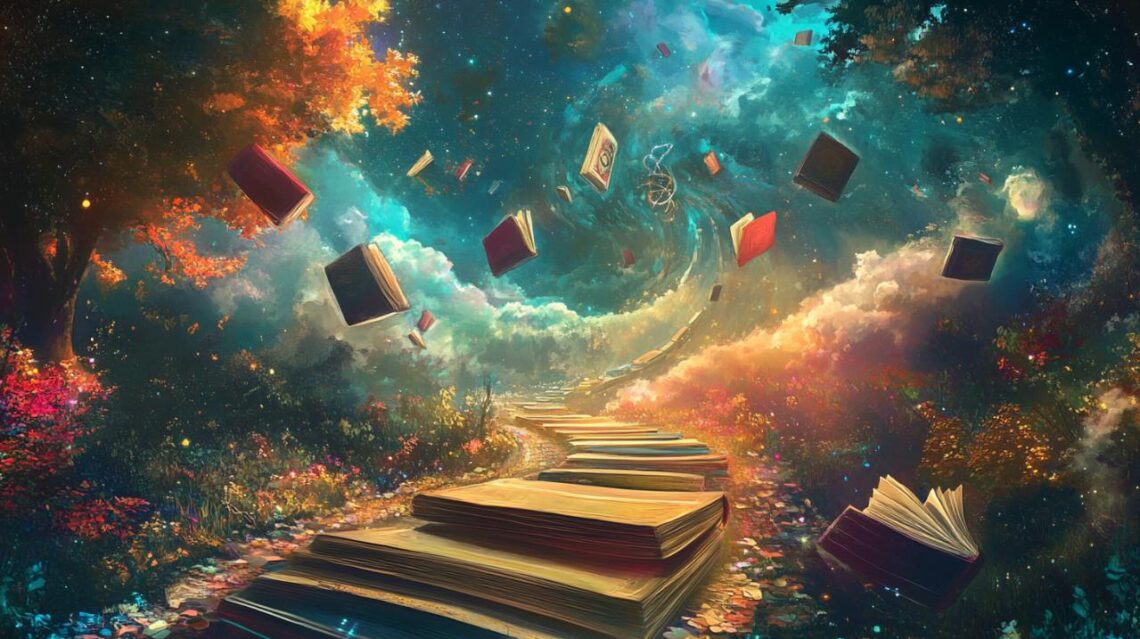
Exploring the Latest Cultural Trends in Philosophy and Literature
The landscape of thought and artistic expression continues to evolve at a rapid pace, influenced by technological innovation, environmental urgency, and the ongoing reassessment of cultural narratives. Philosophy and literature are no longer isolated disciplines; they increasingly intersect with science, technology, and lived experience, creating a dynamic space where ideas are tested, challenged, and reimagined. Understanding how these cultural trends manifest in contemporary discourse offers valuable insight into the intellectual currents shaping our society and the stories we tell about ourselves.
Contemporary Shifts in Philosophical Discourse and Modern Thought
Philosophical inquiry today reflects a world in transition, grappling with the implications of digital life and the existential questions that emerged from recent global upheaval. British academia, long a bastion of rigorous debate and intellectual tradition, has embraced new themes that respond directly to the challenges of the twenty-first century. Interdisciplinary work has become a hallmark of this evolution, with scholars increasingly drawing on insights from the arts and science to enrich their analyses. This cross-disciplinary collaboration fosters creativity and opens avenues for exploring fundamental themes that resonate across multiple fields. The philosophy of literature, for instance, examines how narratives shape our understanding of meaning, identity, and morality, while also acknowledging the role of artistic inspiration in driving philosophical thought.
The Rise of Digital Ethics and Technological Philosophy in British Academia
The rapid expansion of digital technology has prompted a surge of interest in ethical questions surrounding artificial intelligence, data privacy, and the transformation of human relationships. British universities and research institutions have become hubs for this emerging branch of contemporary philosophy, where thinkers interrogate the moral dimensions of algorithms, surveillance, and virtual identity. Digital ethics is not merely a theoretical exercise; it addresses real-world dilemmas that affect millions of people daily. Philosophers are now engaging with computer scientists, legal experts, and social theorists to develop frameworks that balance innovation with accountability. This intellectual discourse reflects a broader recognition that technology is not neutral but embedded with values and assumptions that require scrutiny. The result is a vibrant field that bridges abstract reasoning with practical concerns, demonstrating how philosophical inquiry remains vital in an age defined by rapid change.
Post-Pandemic Existentialism and Its Impact on British Philosophical Circles
The upheaval caused by the global health crisis has revitalised existential philosophy, prompting renewed examination of themes such as mortality, freedom, and the meaning of community. British philosophical circles have witnessed a resurgence of interest in thinkers who explore how individuals navigate uncertainty and construct purpose in the face of disruption. This post-pandemic existentialism does not simply rehash mid-twentieth-century ideas but adapts them to contemporary circumstances, including the experience of isolation, the fragility of social structures, and the limits of institutional responses. Discussions in academic journals, public lectures, and even WordPress blog platforms have proliferated, reflecting a widespread desire to make sense of collective trauma and personal dislocation. The emphasis on lived experience and emotional depth connects philosophy more closely with the arts, as literature and other creative forms offer powerful expressions of existential struggle. This fusion enriches cultural understanding and underscores the enduring relevance of philosophical reflection in times of crisis.
Evolution of Literary Expression and Cultural Narratives Today
 Literature has always been a mirror to society, but the past few years have seen a marked shift in the stories being told and the voices being heard. Contemporary writers in the United Kingdom are challenging established norms, expanding the boundaries of genre, and engaging with urgent social and environmental issues. The philosophy of literature remains central to these developments, as critics and scholars analyse how narrative techniques, thematic concerns, and linguistic choices reflect deeper questions about human existence and semantic meaning. Literary criticism today is informed by a wider range of perspectives, drawing on academic research, cultural theory, and insights from other disciplines. This evolution is not confined to elite circles; it is evident in the growing monthly readership of literary journals, book recommendations circulating through digital platforms, and the vibrant communities that form around shared reading experiences.
Literature has always been a mirror to society, but the past few years have seen a marked shift in the stories being told and the voices being heard. Contemporary writers in the United Kingdom are challenging established norms, expanding the boundaries of genre, and engaging with urgent social and environmental issues. The philosophy of literature remains central to these developments, as critics and scholars analyse how narrative techniques, thematic concerns, and linguistic choices reflect deeper questions about human existence and semantic meaning. Literary criticism today is informed by a wider range of perspectives, drawing on academic research, cultural theory, and insights from other disciplines. This evolution is not confined to elite circles; it is evident in the growing monthly readership of literary journals, book recommendations circulating through digital platforms, and the vibrant communities that form around shared reading experiences.
Decolonising literature: new voices reshaping british literary landscapes
One of the most significant cultural trends in recent years has been the movement to decolonise literature, a process that involves re-examining the canon, amplifying marginalised voices, and challenging Eurocentric narratives. British publishing has begun to reflect a more diverse array of experiences, with authors from varied ethnic, cultural, and geographical backgrounds gaining prominence. These writers bring fresh perspectives to world literature, exploring themes of identity, displacement, and resistance that resonate across borders. The effort to decolonise is not simply about adding new names to syllabi; it requires a fundamental rethinking of literary theory and the assumptions that underpin cultural hierarchies. Interdisciplinary work between literary scholars, historians, and sociologists has been crucial in this endeavour, as it reveals how power structures shape what is valued and preserved. The result is a richer, more inclusive literary landscape that acknowledges the complexity of human experience and the interconnectedness of global histories.
Climate Fiction and Eco-Criticism in Contemporary UK Publishing
As environmental concerns have intensified, literature has responded with a surge of climate fiction and eco-criticism, genres that explore humanity's relationship with the natural world and the consequences of ecological degradation. UK publishers have embraced this trend, recognising both its artistic merit and its urgency. Writers are crafting narratives that blend scientific insight with imaginative storytelling, creating works that challenge readers to consider their own roles in environmental crises. Eco-criticism, meanwhile, has emerged as a vital strand of literary analysis, examining how texts represent nature, sustainability, and the ethics of resource use. This intellectual discourse is informed by principles from both the arts and science, demonstrating the value of cross-disciplinary collaboration in addressing complex global challenges. The growing body of climate fiction and its critical reception reflect a broader shift in cultural priorities, as societies grapple with the imperative to rethink progress, consumption, and the legacy we leave for future generations.
The convergence of philosophy and literature in the twenty-first century offers a compelling example of how intellectual traditions adapt to new realities. Whether through the exploration of digital ethics, the reassessment of existential questions, the amplification of diverse voices, or the urgent engagement with environmental crisis, these fields continue to shape and reflect the values of contemporary society. As readers, scholars, and creators navigate this evolving landscape, they participate in a dynamic conversation about meaning, justice, and the possibilities of human imagination.





